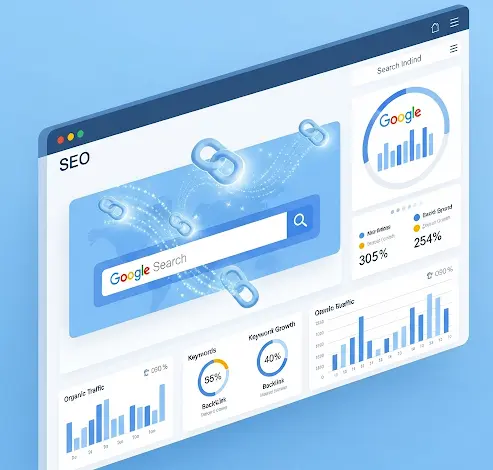Rapid URL Indexer Explained – Fastest Way to Get Indexed in 2025
Rapid URL Indexer: What It Is, How It Works, and Why SEOs Swear by It in 2025
Rapid URL Indexer: What It Is, How It Works, and Why SEOs Swear by It in 2025
Every SEO expert, marketer, and blogger has been there — you publish a great new page, only to find that days (or weeks) later, it’s still not indexed on Google. That visibility delay can cost you traffic, conversions, and even revenue.
That’s exactly where a rapid URL indexer comes in.
What Is a Rapid URL Indexer?
A rapid URL indexer is a tool or service designed to get your web pages indexed by search engines (especially Google) significantly faster than traditional methods. Instead of waiting for bots to crawl your site via internal links, backlinks, or sitemap submissions, you take control — pushing URLs directly to indexing pipelines.
The goal is simple: get seen fast.
Who Uses Rapid URL Indexers — And Why?
These tools are used by:
- SEO professionals managing multiple sites
- News publishers where timing is critical
- Ecommerce businesses adding new products
- Bloggers and affiliate marketers needing fast SERP entry
- Agencies needing to show clients quick visibility gains
Whether you’re launching a new domain or refreshing 1,000 product pages, these tools are a godsend.
Why Google Takes So Long to Index Pages
Google uses crawlers to explore and index the web, but it prioritizes pages based on:
- Site authority
- Backlink volume
- Content frequency
- Sitemap quality
- Technical structure
New or low-authority sites often get left behind. Even solid content might take weeks to appear.
This delay can:
- Prevent ranking for trending topics
- Hurt time-sensitive campaigns
- Stall your SEO momentum
How a Rapid URL Indexer Actually Works
Most rapid indexers use a combination of methods like:
- Direct pings to Google and Bing
- Submitting to API endpoints
- Dropping links on micro-blogs or indexing hubs
- Simulated interaction through browser extensions or bots
- Temporary backlinks to trigger crawl behavior
No tool guarantees indexing — but the best ones can increase your chances dramatically within 1–24 hours.
Google Indexing API: A Semi-Official Optio
Google offers the Indexing API, but it’s technically limited to:
- Job postings
- Live event content
Still, SEOs have adapted it to speed up other types of content. Here’s how to set it up properly. Google Indexing API Setup (2025 Guide)

- Go to Google Cloud Console → create a new project
- Enable Indexing API
- Create a Service Account → give it “Owner” permissions
- Generate a JSON key file
- Add that service account email to your Google Search Console property
- Use a script (Node.js or Python) to push URLs
Need help? Contact us for full setup support
Best Rapid URL Indexer Tools (2025 Review)
| Tool | Type | Known For |
|---|---|---|
| RapidURLIndexer.com | Web tool | High indexing rate, API access |
| Omega Indexer | Paid tool | Power users, heavy automation |
| IndexMeNow | Pay-per-index | Refund for failures |
| WP Rapid Indexer Plugin | WordPress | Built-in URL push for new posts |
These tools typically charge per URL or via credit systems, making them scalable for businesses. There are more tools you can see indexer tools here
Rapid Indexer vs Google Search Console: Which Is Better?
| Feature | Google Search Console | Rapid URL Indexer |
|---|---|---|
| Manual submission | ✅ | ✅ |
| API capabilities | ❌ (limited) | ✅ |
| Instant indexing | ❌ | ✅ |
| Suitable for all sites | ✅ | ✅ |
For time-sensitive SEO, both together is the best strategy.
Real-World Examples
- Affiliate Sites: Indexed hundreds of reviews overnight before product launches.
- News Blogs: Pushed time-sensitive articles within 2 hours.
- Local Businesses: Indexed seasonal service pages instantly during promotional periods.
Is It Safe for SEO?
Yes — when used responsibly.
✅ Don’t spam URLs
✅ Only index real, valuable content
✅ Avoid using shady tools that leave link footprints
Google has never penalized usage of third-party indexers — but they do expect quality.
When Should You Use It
Use rapid URL indexers when:
- Launching new pages or sites
- Updating critical content
- Running limited-time promotions
- Fixing deindexed pages
But remember: Indexing ≠ Ranking
You still need quality content, backlinks, and technical SEO.
People Also Ask:
1. Is there a free rapid URL indexer?
Some tools offer trial credits, but reliable indexing usually requires paid solutions.
2. Can I use it for local SEO?
Absolutely. Local businesses benefit from fast indexing during peak times (e.g., holidays, sales).
3. Can I automate indexing for new blog posts?
Yes — with WP plugins or API integrations.
Final Verdict: Should You Use a Rapid URL Indexer?
If you care about visibility, yes.
Whether you’re launching a new post or trying to recover a forgotten page, this tool gives you control over your crawl schedule.
Just remember: it’s not a replacement for great SEO — it’s an accelerator.
Need Help with Indexing or SEO?
At Bizbell Solutions, we help businesses:
- Set up indexing automation
- Fix crawl issues
- Optimize for visibility and ranking
